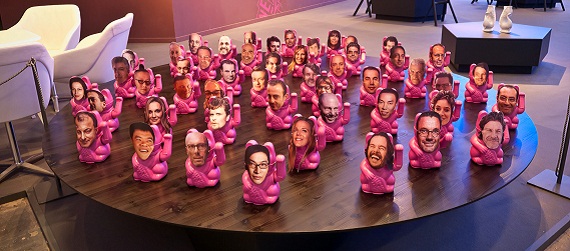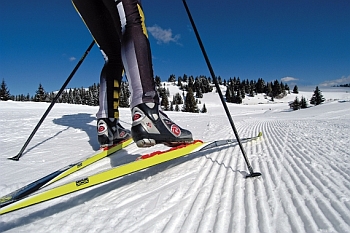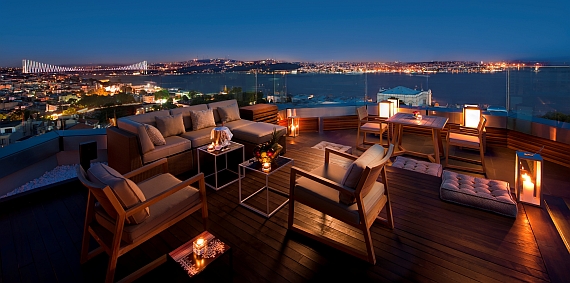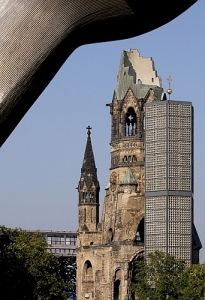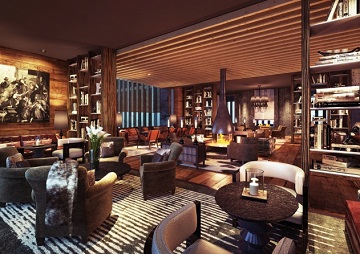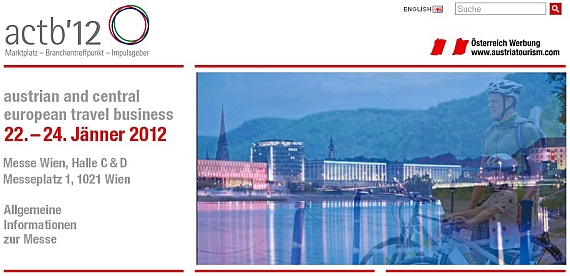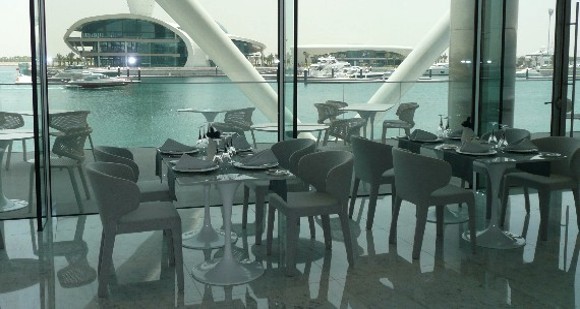
News & Stories
Berlin. The mood at ITB 2012 was significantly better than the previous year, and similar to that of the preceding investment conference: 2011 was a profitable year for hoteliers, and the still growing worldwide travel activity gives them confidence. Worldwide financial debates, individual EU countries suffering from crises, natural disasters, unrest and taxes hardly seem to harm the industry any longer, as it has adapted to these crises. All the better, when some officials from industry associations finally publicly brand political mistakes in terms of controlling in Germany, the world's travel champion. The 46th ITB was again fully booked and well frequented. Despite this, the ITB's management raised the question whether travel tours should be sold at ITB 2013 or not. hospitalityInside.com interviewed exhibitors in the hotel-specific halls 8.1 and 9 – combined with the question whether these trade-specific halls should be closed completely on the visitor weekends.
Innsbruck. All three world championships on snow in the years 2012 and 2013 are to be held in the Alpine region only a few driving hours distance from each other. Schladming in Austria, Val di Fiemme in Italy and Ruhpolding in Germany are prepared. Whether it is alpine skiing, Nordic competitions or the already in progress Biathlon World Championships – all three would like to achieve their self-imposed tourism goals: Winter competence, internationalisation and improved infrastructures. In view of the mega sports events, millions in sponsorships partially flow in and also into hotels - nevertheless, beds remain empty. Not all hopes and goals are fulfilled by the mega sports events.
Istanbul. The next palace hotel in Istanbul is in sight, the refurbishment on the Ciragan Palace Kempinski is more urgent. 120 million Euro is available for the planned face-lift of the currently undisputed pearl on the Bosporus: It wants to keep its place as a market leader. Additional imperial 5-star hotels in the Turkish metropolis are expected by hardly no one since the RevPar is recovering too slowly after the latest world economic crisis. However, the international chains have strongly won a presence in the lower segments. And the "exotics" are being attracted, e.g., the first Edition by Marriott worldwide. Quick visits in Istanbul - to the established, to an exotic and to a newcomer.
Berlin. More than 22 million room nights and almost ten million guests – the tourism sector of the German capital reached new record figures in 2011. As a result, Berlin successfully stands its ground in international city and congress tourism and further strengthened its position as third most frequented destination in Europe – behind London and Paris and ahead of Rome. Tourism is one of the city's key industries. The new Berlin Brandenburg Willy Brandt airport will generate new economic momentum from June this year. The German federation and the federal state are still arguing about what will happen to the two former airports that are important for the city's further development. An economic view on Berlin as ITB, the world's largest tourism trade fair, approaches.
Bern. On March 11, 2012, Swiss voters will decide on the proposed constitutional restriction on the share of second homes. This "second homes initiative" does not go down well with the real estate and hotel sector. Mixed-use projects such as the combination of hotel and apartments have met with increasing demand from investors and project developers of late. In particular, hotel projects have often secured finance by prior sale of apartments. A "yes" to this initiative would be hugely damaging to the hotel industry and would mean a loss of jobs. The Economic Forum of Grisons paints a dark picture. Meanwhile, tourist numbers in Switzerland continue to fall.
Mauritius. Lux Island Resorts is the new name for Naiade Resorts Ltd.. The change is intended to reflect the complete transformation of the Mauritius-based hotel group with hotels on Mauritius, La Réunion and the Maldives. Behind the company are former One & Only managers.
Frankfurt Star Alliance has become the first global airline alliance to offer online booking and ticketing to convention delegates. The new booking tool allows the convention organisers to direct their participants to a dedicated online booking and ticketing site for all air travel contracted under Star Alliance Conventions Plus.
Vienna. The life of the Austrian and Central European Travel Business came to an end on January 24. Yet the death of the tourism platform, which Austria intended to market together with its eastern neighbours, now serves as a starting shot for versions of the event, also outside Vienna. Nevertheless, "theAlps" sales platform is also now at risk. Whether Austria manages to show its strengths with these new events, remains to be seen.
Madrid. International tourist arrivals grew by over 4% in 2011 to 980 million, according to the latest UNWTO World Tourism Barometer. With growth expected to continue in 2012, at a somewhat slower rate, international tourist arrivals are on track to reach the milestone one billion mark later this year.
Dubai/Abu Dhabi. UAE's tourism sector in 2011 would have looked much different hadn't a frustrated Tunisian, Muhammad Bouazizi, set himself on fire on December 17 last year. His self-immolation sparked what has now been dubbed the "Arab Spring", a wave of protests that has unseated leaders in several countries. The Arab awakening has also unleashed tourists into the safety of Dubai and Abu Dhabi. Staff relocations from neighboring Bahrain, which had its share of demonstrations, helped Dubai, which has been competing with Bahrain and Doha to maintain its title as a financial, trade and tourism hub for the Gulf region. An update about the hotel industry in Dubai and Abu Dhabi.
